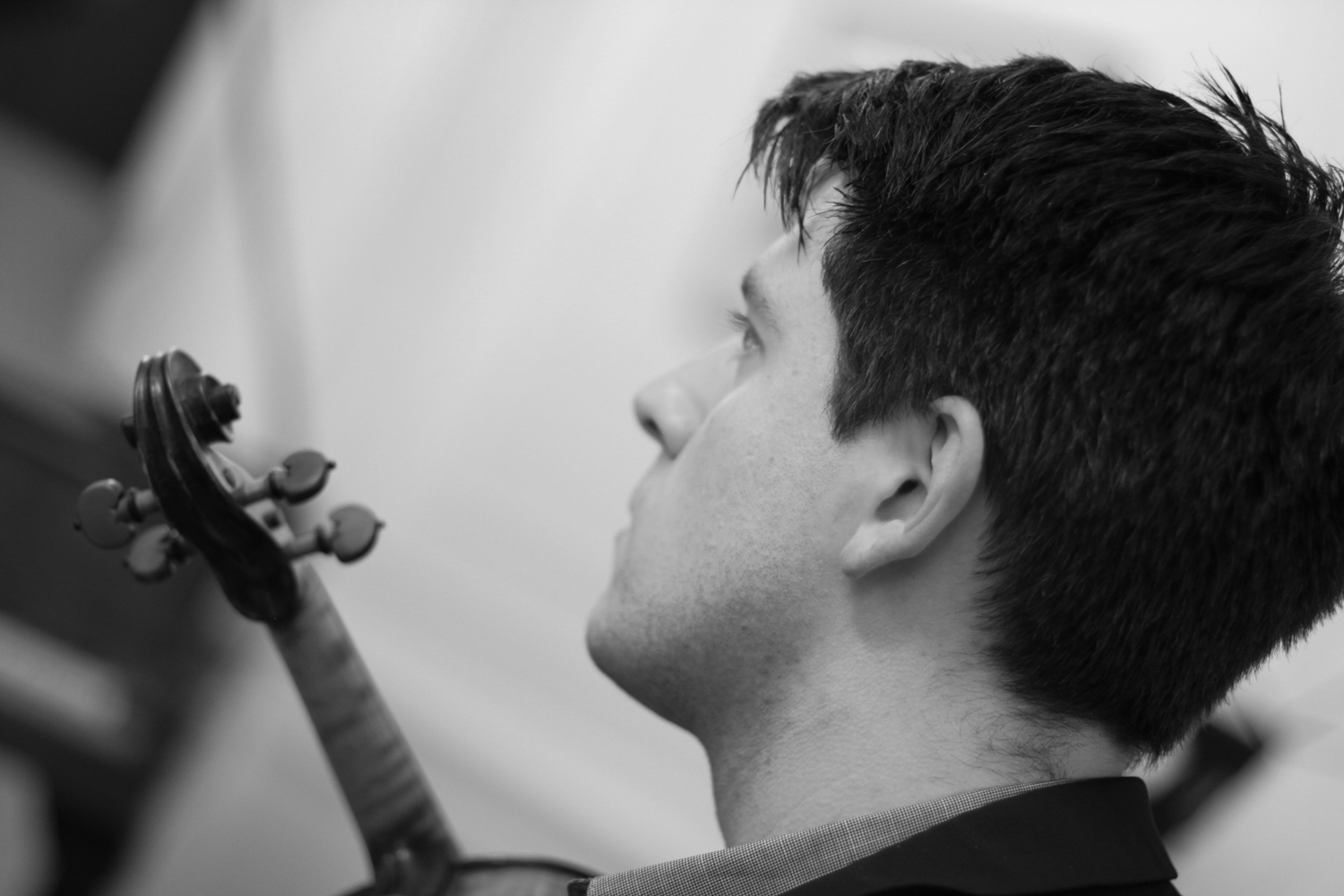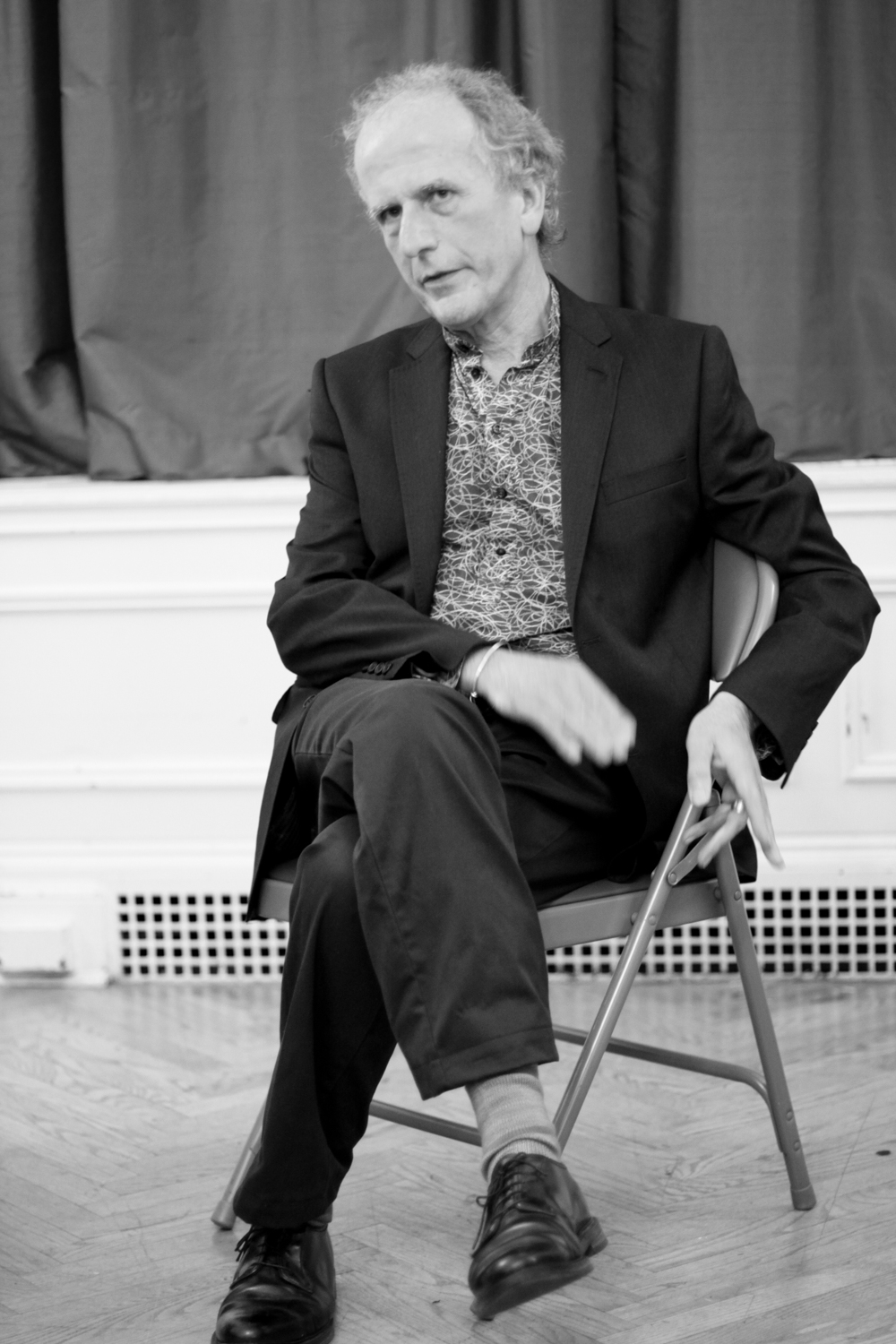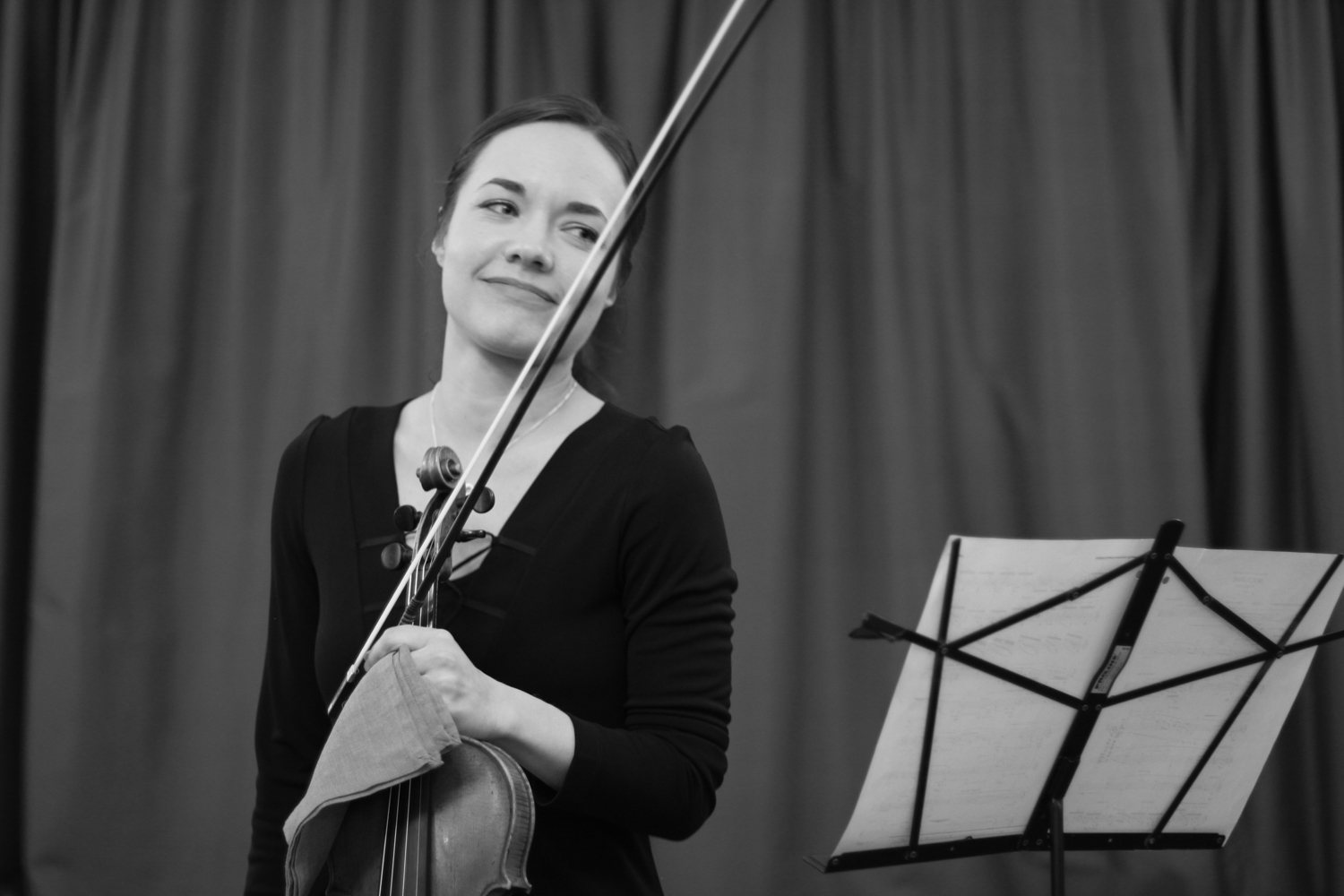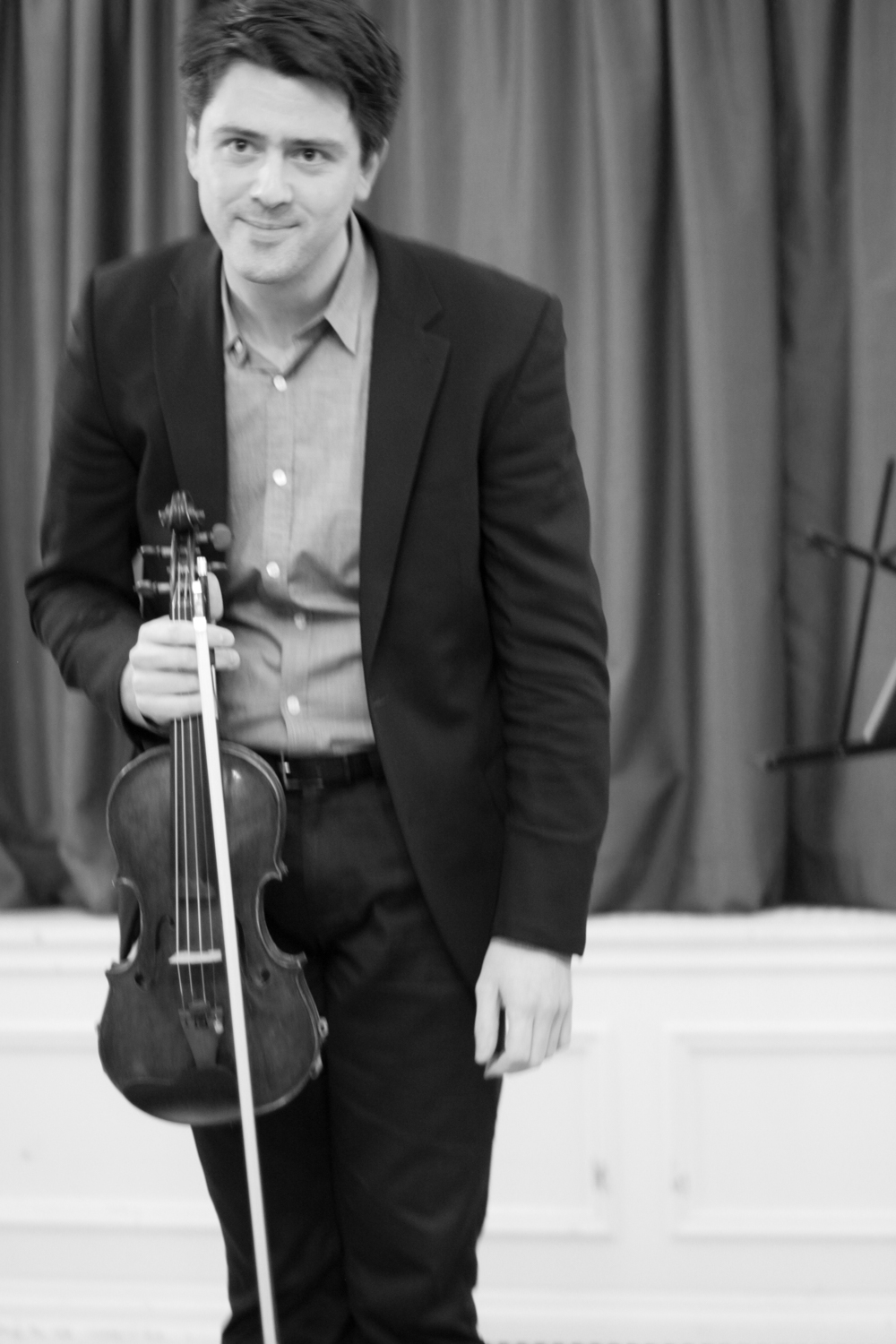A NEW YORK CITY CELEBRATION: THE CENTER FOR FICTION / 28 MARCH 2017
Jacob Ashworth and Emily Daggett Smith perform Baladă și joc by György Ligeti
In the short section “Fuga,” the Welsh writer Paul Griffiths evokes the strange tension between multitude and singularity: “Many while one. Hence the need for the many voices the one musician plays to be pulled together . . . One but many. Fugue as attempt to say more than you can. Fugue as obsession. Fugue as dance.”
Jeremy Davies (left) and Paul Griffiths discuss let me tell you
Griffiths had been speaking of music and musicians, but at the moment he read those words aloud, at Music & Literature’s fifth-anniversary celebration at The Center for Fiction, he could have also been describing the extraordinary ambiance of the room and the evening’s program. Griffiths’ stentorian presence underscored his centrality to the night’s schedule, even as his dual love of the calliopean and euterpean arts allowed the evening’s performances to allude to the magazine’s previous five years. In a subtle nod to the magazine’s second issue, on the Hungarian artists László Krasznahorkai and Béla Tarr, pieces by the two Hungarian composers György Kurtág and György Ligeti were performed on violin—the former’s Tomas Blum in Memoriam interleaved between Bach, as an overture of sorts to the evening, the latter's early, nostalgic violin duet Baladă și joc performed by Jacob Ashworth and Emily Daggett Smith on the heels of Griffith’s memorial text for the composer.
Lee Dionne introduces Unsuk Chin prior to performing her Etudes
At the center of the evening was a thoughtful conversation between Griffiths and longtime Music & Literature ally Jeremy M. Davies, as well as an extended sequence of readings that included selections from Griffiths’ The Tilted Cup as well as from his constrained-writing narratives they come to me and let me tell you, the latter a story of Shakespeare’s Ophelia told only through the 483 words she was granted in Shakespeare’s Hamlet. To hear Griffiths sound his words was to fully comprehend how his careful precision barely constrained the sheer passion and energy of the stories he told.
And even as the evening centered on Music & Literature’s seventh issue, it looked backwards, nostalgically, by pairing Griffiths’ “I went to the house but did not enter” with Kaija Saariaho’s Nocturne for solo violin. The nocturne had memorably been performed as part of an earlier Music & Literature New York event, this one launching its fifth issue, featuring Kaija Saariaho’s work, in a bravura performance by Saariaho’s own daughter. Those attending this evening's program were also treated to a look forward with an energetic piano performance by Lee Dionne of two of Unsuk Chin’s madcap Etudes, auguring 2017’s publication of a new issue featuring the work of Chin as well as French writer Éric Chevillard and saxophonist-composer Mark Turner.
It was an intimate evening that revealed just how thoroughly Music & Literature has carved out a beautiful, memorable aesthetic, and how it promises to enthrall even more readers and listeners in its next five years.
—Katrine Øgaard Jensen
—All photographs courtesy of Jesse Ruddock










